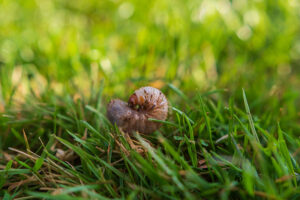 Natural garden pest control uses safe, eco-friendly methods. These include beneficial insects, companion planting, organic sprays, and barriers. This approach helps manage pests without harming people, pets, or pollinators. These practices let you protect your plants while keeping a healthy balance in your yard.
Natural garden pest control uses safe, eco-friendly methods. These include beneficial insects, companion planting, organic sprays, and barriers. This approach helps manage pests without harming people, pets, or pollinators. These practices let you protect your plants while keeping a healthy balance in your yard.
This guide explains why natural pest control matters, the best methods, and answers to common questions.
Why Choose Natural Pest Control?
Choosing natural pest control improves health, safety, and the environment. Chemical pesticides may kill pests quickly but leave behind residue that impacts soil, water, and food crops. Natural methods avoid this risk, which means you can harvest without worrying about toxins.
They also protect pollinators, which are essential for fruit and vegetable production. Bees, butterflies, and birds stay safe when chemicals are removed.
Long-term effectiveness is another reason to switch. Pests can become resistant to chemical sprays.
However, natural methods like companion planting and beneficial insects help create balance. This balance prevents infestations from taking over again.
Best Natural Pest Control Methods for Gardens
Natural methods work best when layered. Prevention comes first, but you also need sprays, barriers, and targeted treatments to handle specific threats.
1. Prevention First: Healthy soil and diverse planting
Start with soil health. Compost, organic matter, and crop rotation build strong roots and resilient plants.
Companion planting discourages pests. Marigolds repel nematodes. Garlic and basil keep aphids away. Mint drives off ants and moths.
Planting different crops in the same bed each year also reduces pest buildup.
2. Beneficial Insects
Beneficial insects are natural hunters. Ladybugs eat aphids. Praying mantis go after flies, crickets, and caterpillars. Parasitic wasps attack caterpillars and beetle grubs.
Attract them by planting dill, fennel, and yarrow. Avoid broad sprays that wipe out both pests and helpers.
3. Organic Sprays That Work
Neem oil is one of the most effective natural sprays. It controls aphids, mites, and caterpillars.
Soap spray, made with mild dish soap and water, helps against soft-bodied pests.
Garlic spray reduces fungus and insect problems. Pepper spray deters chewing insects and mites. Essential oils like tea tree and peppermint oil also repel pests safely.
4. Natural Barriers and Traps
Barriers keep pests out before damage begins. Diatomaceous earth controls slugs, beetles, and ants. Beer traps and melon rinds attract and kill snails. Copper tape creates a slug-proof edge around raised beds.
Row covers and garden netting block insects, birds, and squirrels while still letting in air and sun.
5. Natural Fungus and Disease Control
Fungal issues spread quickly in damp weather. Baking soda spray controls powdery mildew. Milk spray works as a natural preventative against fungi.
Sulfur is another safe organic treatment that helps protect plants from disease without harming soil health.
Natural Pest Control for Specific Problems
 Different pests call for different strategies. Use these targeted approaches for common garden problems.
Different pests call for different strategies. Use these targeted approaches for common garden problems.
Slugs and Snails
Hand-pick them in the evening, set beer traps, or lay down copper tape. Repellent herbs like rosemary also help.
Aphids and Ants
Spray neem oil or soap spray on infested leaves. Release ladybugs or lacewings to control populations naturally. Use peppermint oil cotton balls to keep ants out of beds.
Grubs and Beetle Larvae
Apply milky spore treatment to the soil. Add beneficial nematodes, which attack grubs without harming plants or people.
Squirrels and Rodents
Scatter red pepper flakes near garden beds. Place peppermint oil cotton balls to repel them. Motion-sensing sprinklers and fencing add extra protection.
Pros and Cons of Natural Pest Control
Natural pest control is eco-friendly, safe, and sustainable. It protects people, pets, and pollinators while improving soil health.
But natural methods require persistence. They may cost more at first and often work slower than chemical sprays.
Results take days or weeks instead of hours. The long-term payoff is healthier plants and fewer recurring infestations.
Tips for Success with Organic Pest Control
Apply sprays at dusk or early morning to protect pollinators. Rotate your methods to prevent pests from adapting.
Combine multiple strategies for stronger protection. Keep records of what worked each season so you can refine your plan over time.
FAQs About Natural Outdoor Pest Control
What is the best natural pest control for vegetable gardens?
Neem oil and soap spray are two effective natural options.
Does vinegar kill garden pests?
Yes, but it can harm soil and plants if overused. Apply with caution.
How do I keep bugs off plants without chemicals?
Use companion planting, barriers, neem oil, soap spray, and essential oils like peppermint oil.
What is the safest organic spray for gardens?
Mild soap spray is safe for most vegetables and flowers. Peppermint oil and tea tree oil sprays are also effective natural choices when diluted.
Outdoor Pest Control in Dallas, TX You Can Trust
 Start with natural pest control methods: healthy soil, companion planting, beneficial insects, and safe organic sprays. Every garden responds differently, so experiment until you find what works.
Start with natural pest control methods: healthy soil, companion planting, beneficial insects, and safe organic sprays. Every garden responds differently, so experiment until you find what works.
If pests still overwhelm your yard, contact Lawn Sense for outdoor pest control in Dallas, TX and nearby areas. Remember: Lawn Sense means no nonsense.